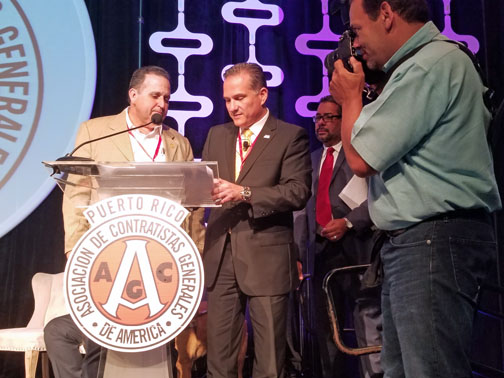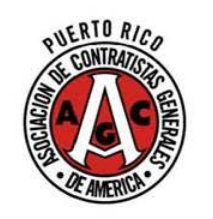Tariffs raise construction costs, slow housing projects in Puerto Rico

The Associated General Contractors’ José Torrens warns that rising prices and stalled permits may hinder recovery.
President Donald Trump’s imposition of tariffs in March on imports from Canada, Mexico and China is affecting multiple industries, including Puerto Rico’s construction sector. The increased cost of materials and equipment is expected to impact both public infrastructure and private development projects.
José Torrens, president of the Puerto Rico Chapter of the Associated General Contractors of America (AGC-PR), said the price hikes are contributing to market uncertainty.
“Generally speaking, tariffs affect the cost of materials and equipment, which in turn increases overall construction costs,” Torrens told News is my Business. “The exact extent of these increases is still unclear, as tariff rates continue to shift. The uncertainty has already caused some manufacturers to halt deliveries to the U.S., further disrupting supply chains and driving up prices.”
He warned that the resulting instability could hinder Puerto Rico’s broader economic recovery, which depends in part on federally funded reconstruction and infrastructure investment.
The construction industry, he noted, relies on cost estimates prepared months in advance. Private sector projects can sometimes accommodate price changes, but public sector contracts, many of which were budgeted before the 2021 price surge, often lack escalation clauses. In such cases, contractors must absorb the added costs, increasing financial risk and reducing profit margins.
“This situation is discouraging general contractors from participating in government bids, especially when contracts lack price adjustment provisions,” Torrens said.
He emphasized the need to stimulate new housing construction, especially in the affordable segment, where demand remains high.
“There are more than 20 proposed housing projects funded by [Community Development Block Grant program (CDBG)] grants that are stalled at the Housing Department,” he said. “This delays not only job creation and economic development but also the delivery of safe housing to families in need.”
Torrens also raised concerns about the island’s readiness for future natural disasters, given the slow pace of formal housing development.
“How can we discuss resilience and sustainability when so few housing projects are being built?” he asked. “And how can we attract labor from the mainland U.S. if there’s not enough housing? We must create a competitive business environment with dependable access to materials and labor, fair market prices, and efficient, transparent government processes.”










